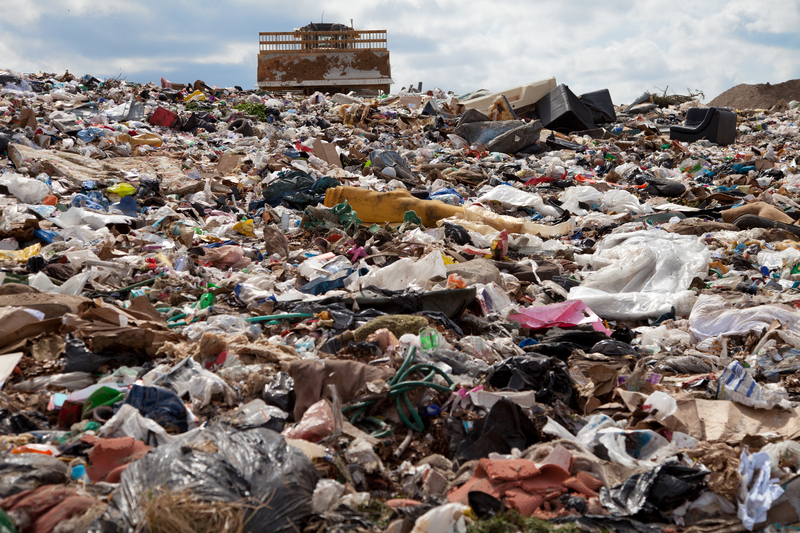Top 10 Eco Savvy Ways to Reduce Green Waste
In today's environmentally-conscious world, reducing green waste has become more crucial than ever. Not only does it help in conserving resources, but it also reduces the carbon footprint. By adopting eco-friendly practices, individuals and communities can significantly decrease the amount of organic waste generated. This article outlines ten effective ways to minimize green waste while promoting sustainability.
1. Composting: Turn Waste into Valuable Resource
Composting is a natural process that transforms organic waste into nutrient-rich fertilizer. By adding fruit peels, vegetable scraps, and yard waste to a compost pile, you can create a rich soil amendment that benefits your garden.
- Start a compost bin or pile in your backyard.
- Include a mix of green and brown materials.
- Regularly turn the pile to aerate it and speed up the decomposition process.
Benefits of Composting
- Reduces the amount of waste sent to landfills.
- Enriches the soil, promoting healthier plant growth.
- Retains moisture, reducing the need for water in your garden.

2. Mulching: Protect and Nourish Your Soil
Mulching involves spreading organic materials over the soil surface, which can help reduce green waste and benefit gardens.
- Use grass clippings, shredded leaves, or wood chips as mulch.
- Apply a thick layer around plants to conserve moisture.
- Mulch suppresses weeds and regulates soil temperature.
3. Conscious Consumption: Buy Only What You Need
One of the most effective ways to reduce green waste is through mindful purchasing. By planning meals and making strategic shopping decisions, you can minimize waste and contribute to a greener planet.
- Create a shopping list and stick to it.
- Choose products with minimal packaging.
- Buy in bulk to reduce packaging waste.
4. Recycle Yard Waste: Give It a Second Life
Yard waste such as leaves, branches, and grass clippings can be recycled or repurposed, reducing the overall green waste and giving these materials a new purpose.
- Use a leaf mulcher to shred leaves for composting or mulching.
- Rent a chipper to create wood chips from branches.
- Many municipalities offer yard waste collection programs--check locally for services.
5. Home Gardening: Grow Your Own Produce
Growing your own food reduces the amount of waste associated with packaging and transportation. It also ensures that you only harvest what you need, preventing surplus waste.
- Start a vegetable garden in your backyard or a community plot.
- Plant seasonal crops adapted to your local climate.
- Utilize compost to enhance soil fertility naturally.
6. Use Natural Fertilizers: Go Organic
Traditional fertilizers often contain chemicals that can be harmful to the environment. Opt for natural alternatives to reduce green waste and create a more sustainable garden.
- Use compost as a natural soil enhancer.
- Add animal manure to enrich the soil naturally.
- Create liquid fertilizers by steeping compost or plant materials in water.
7. Embrace Vermicomposting: The Power of Worms
Vermicomposting uses worms to convert organic waste into nutrient-rich compost. This method is perfect for those with limited space, such as apartments or urban environments.
- Purchase a vermicomposting bin or make your own.
- Add food scraps and brown material to the bin.
- Harvest worm castings regularly to use as an exceptional soil amendment.
8. Promote Edible Landscapes: Beauty and Utility
Edible landscaping integrates food production into ornamental gardens. It reduces green waste by replacing inedible plants with those that provide sustenance.
- Plant fruit trees, berry bushes, and edible groundcover.
- Incorporate herbs and vegetables into flower beds.
- Design gardens that are both functional and aesthetically pleasing.
9. Reuse and Upcycle: Creative Solutions for Waste Management
Before discarding organic waste, consider whether it can be repurposed or upcycled. Often overlooked, this approach can generate innovative solutions to reduce waste.
- Use fallen leaves and twigs in craft projects or as Halloween d?cor.
- Transform wine corks into mulches or garden markers.
- Convert fragile eggshells into seed starters.

10. Educate and Advocate: Influence Positive Change
Spreading awareness and educating others about the importance of reducing green waste can multiply the impact. By advocating for sustainable practices, you can encourage more people to join the movement.
- Host workshops on composting or sustainable gardening.
- Share tips and success stories on social media platforms.
- Encourage schools and community centers to establish eco-friendly programs.
Conclusion
Reducing green waste is a vital step toward fostering a more sustainable future. By implementing these eco-savvy strategies, you not only contribute to environmental conservation but also enhance your gardening practices and strengthen community ties. Adopt these practices today and play your part in creating a cleaner, greener world for generations to come.